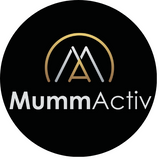News
How Much H2O Is Enough?
While you are breastfeeding you should drink extra water, but you don’t need to overdo it. Hydration while breastfeeding should follow the commonsense “in and out” principles of hydration: If you use more fluid, you must take more in.
“Lactation involves specific physiological responses of the mother and requires both an increased supply of nutrients and water (IoM, 1991).
Breast milk contains, on average, 87% water (EFSA, 2010), water content varies depending on the time of day. During a single breastfeeding episode, foremilk (the milk obtained at the beginning of breastfeeding) has higher water content and keeps the infant hydrated, whereas hindmilk (milk released near the end of breastfeeding) contains two to three times more fat than foremilk (Riordan and Wambach, 2009).
Since breast milk is produced using maternal body water, a milk volume of 750 mL/d at 87% of water equals a significant extra water loss for the mother, compared to the daily normal losses. Maintaining water balance can therefore be challenging for lactating women.”
Surprisingly enough if you consume more water your breast milk production does not necessarily increase(like my mother told me) instead the maternal health suffers and becomes at risk of dehydration.
Here’s how to get the right amount of water to maintain hydration while breastfeeding:
- Drink enough water to quench your thirst plus a bit more, since thirst is not a completely reliable indicator of fluid needs.
- Carry a water bottle with you in your diaper bag like this one from @realactivemovement
I get in the habit of drinking a glass of water every time I breastfeed, plus a couple more each day. Try to keep with the principle of when baby drinks, mother drinks. Mums who train also need more water due to replacing the extra bit from sweating it out as well!










